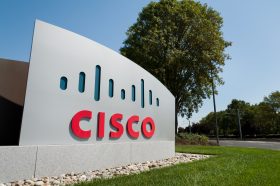Why Cisco and HPE Both Targeted Network Deals

In the past week, both Cisco (Nasdaq: CSCO) and HPE (NYSE: HPE) have targeted networking acquisitions to fill out their product strategy.
On the surface, it's a sign that both of these large companies aren't done filling out their networking portfolios. Dig deeper, and HPE's acquisition of cellular technology provider Athonet and Cisco's acquisition of cybersecurity provider Valtix show that networking portfolios have to grow to adopt the expanding types of access technology that enterprise networks need -- for example ways to connect to multiple clouds and multiple wireless technologies.
HPE Snaps Up Athonet
HPE last week announced it will be acquiring cellular technology provider Athonet to expand its private wireless offerings in combination with its Aruba wireless networking portfolio.
Based in Italy, Athonet has been developing 4G and 5G mobile core solutions for 15 years. HPE says Athonet has 450 successful customer deployments in various industries, including leading mobile operators, hospitals, airports, transportation ports, utilities, government and public safety organizations.
To access the rest of this article, you need a Futuriom CLOUD TRACKER PRO subscription — see below.
Access CLOUD TRACKER PRO
|
CLOUD TRACKER PRO Subscribers — Sign In |

















